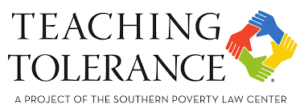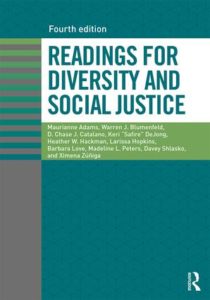Social Justice
go.ncsu.edu/readext?596083
en Español / em Português
El inglés es el idioma de control de esta página. En la medida en que haya algún conflicto entre la traducción al inglés y la traducción, el inglés prevalece.
Al hacer clic en el enlace de traducción se activa un servicio de traducción gratuito para convertir la página al español. Al igual que con cualquier traducción por Internet, la conversión no es sensible al contexto y puede que no traduzca el texto en su significado original. NC State Extension no garantiza la exactitud del texto traducido. Por favor, tenga en cuenta que algunas aplicaciones y/o servicios pueden no funcionar como se espera cuando se traducen.
Português
Inglês é o idioma de controle desta página. Na medida que haja algum conflito entre o texto original em Inglês e a tradução, o Inglês prevalece.
Ao clicar no link de tradução, um serviço gratuito de tradução será ativado para converter a página para o Português. Como em qualquer tradução pela internet, a conversão não é sensivel ao contexto e pode não ocorrer a tradução para o significado orginal. O serviço de Extensão da Carolina do Norte (NC State Extension) não garante a exatidão do texto traduzido. Por favor, observe que algumas funções ou serviços podem não funcionar como esperado após a tradução.
English
English is the controlling language of this page. To the extent there is any conflict between the English text and the translation, English controls.
Clicking on the translation link activates a free translation service to convert the page to Spanish. As with any Internet translation, the conversion is not context-sensitive and may not translate the text to its original meaning. NC State Extension does not guarantee the accuracy of the translated text. Please note that some applications and/or services may not function as expected when translated.
Collapse ▲Social Justice Standards, Teaching Tolerance
Standards guide practice and inform decision-making; they provide structure, consistency, and a common language. Such factors are especially important when teaching about social justice issues. Organized under four domains — Identity, Diversity, Justice and Action — Teaching Tolerance’s Social Justice Standards outline desired outcomes that result from effective social justice education on student’s emotional and social development.
Social Justice Lesson Plans, National Education Association (NEA)
These award-winning lesson plans and printable handouts are cross-disciplinary and include Common Core equivalencies.
Readings for Diversity & Social Justice, Routledge
This resource serves as a companion website for the textbook by the same name. It includes discussion questions, activities, and action steps for teaching and learning about diversity and social justice. Though geared toward university students, some of the content is adaptable for use in high school and community youth settings.
Defining Power, Developing Language Lesson, The Knotted Line
Understanding power is foundational to critical analysis. This lesson, which aligns with Common Core Standards, affords students the opportunity to develop a common language around the concept of power and an understanding of how it manifests individually, institutionally, and socio-culturally.






